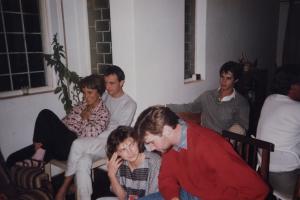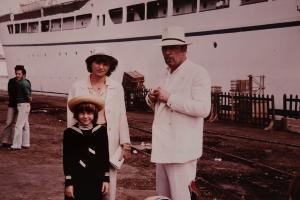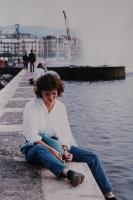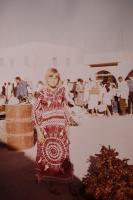Catherine Chappuis was born on 10 June 1960 in Geneva. After completing her compulsory schooling at the age of 15, she began work as a gardener and then, from 1976 to 1979, studied horticulture. Diploma in hand, she was hired to work as an au pair and gardener in England for two years. Once back in Geneva, she worked from 1981 to 1983 at Geneva’s central bus station as an office employee and teller. From there she went to one of Geneva’s community centres where, from 1983 to 1985, she ran youth activities – including skiing and other outdoor pursuits – as a camp monitor. In her spare time, she explored various cultural and intellectual interests.
Catherine had a bright, outgoing personality, was well-organized and efficient, and didn’t shy away from responsibility. Perhaps drawing on these qualities, she decided to become a secretary. She enrolled in a further education course in this field, completing it in 1985. After working odd jobs as a secretary and typist for some months through a temp agency, Catherine applied for work with the ICRC where her brother was already working.
Apart from a period living in Gabes, Tunisia, when she was in primary school, and her time as an au pair in England, Catherine’s life was centred on Geneva until 1986. But when she joined the ICRC in the spring of that year, she made it clear that she wanted to work abroad – and her training and skills were certainly in demand. For her first assignment, in June 1986, she was sent to Angola, where a civil war was in full swing. It was a trial by fire, the type of posting that even a seasoned humanitarian would find challenging. But Catherine came into her own. She worked at the ICRC’s main operational bases in Angola – Huambo, Luanda and Kuito – providing secretarial services but also serving as an interface with the surrounding community and helping out with the offices’ telecommunications needs. Her enthusiasm was contagious, and she was a beacon of light for all who interacted with her.
On the morning of Wednesday, 14 October 1987, Catherine left Kuito – the subdelegation where she was based – on an ICRC-chartered Hercules freight plane for what should have been just a few days. The plane crashed shortly after take-off, just 40 kilometres from its starting point. The aircraft, whose cargo consisted of humanitarian aid for starving people on Angola’s central plateau, came down in the middle of a small village after the pilot tried to make an emergency landing on a country road. All six people on board were killed: Catherine, local staff member Nuno Ferreira, and crewmembers Dorian Shone, Kevin Tocknell, Nicolas Duff and Gary Heap. Two people on the ground – a woman and her baby – were also killed. Catherine was 27 years old.
After arriving in Angola a year earlier, Catherine had endeared herself to her expatriate and local colleagues through her warmth and generosity. She may have followed in her brother’s footsteps in joining the ICRC, but from the moment she left Geneva on her first mission she forged her own path, drawing on her unique qualities to spread the humanitarian spirit.






